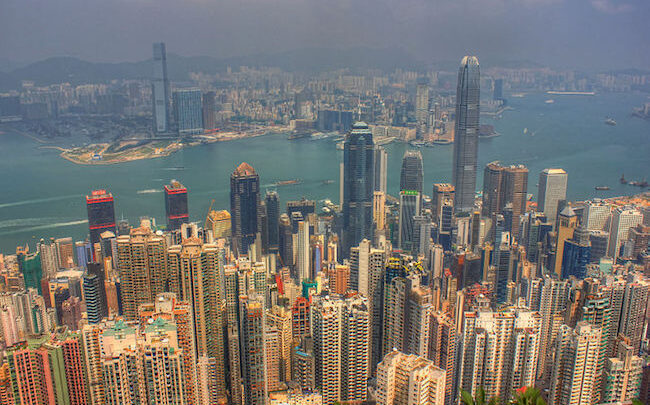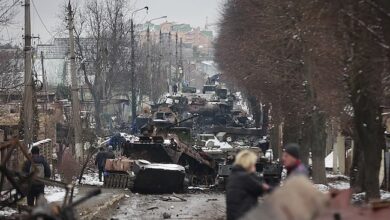Economics drives the great power rivalry between the United States and China
Great power rivalry with China will be predictable. The only way China can win is if America overreacts to Chinese expansion, thus handing Beijing a moral, a propaganda, and quite possibly a military victory.

By Phil W. Reynolds
There is less to worry about with Chinese expansion than recent headlines would suggest. Foreign Affairs, the American Conservative, and Brookings Institution have all pointed to Chinese expansion as the cause of a return to great power rivalries, an extension of the international relations theory of power transition. China is young and rich, while America is old and declining, so the thinking goes. Perhaps.
The latest Chinese military white paper quickly notes on page one that the U.S. has “provoked and intensified” the imbalances in global power relations. The same paragraph paints NATO and the EU with similar brush strokes. Taiwan gets due consideration, with the Chinese military defense spokesman, Wu Qian stating that “If anyone dares to separate Taiwan from China, the Chinese military would not hesitate to go to war.” This accents the March transit of the strait by the Liaoning strike group, built around China’s lone aircraft carrier.
However, there is only a slim chance that power transition with the U.S. will happen. While the hegemonists in D.C. lay awake at night worrying over Chinese tanks and missiles, it is the economics that underpin Chinese geo-political expansion that provide soothing predictability.

China will find it difficult to pay for internal security, providing a social welfare safety net, and challenging the U.S. in Asia. Maintaining stability on the mainland is expensive. Stability is the reason for the party, and without the party, there is no China (so far as the party is concerned) the thinking goes. And the Chinese people have begun to agitate for social improvements. Chinese expenditures on domestic security are up sharply and are outstripping growth in its defense budget. In Tibet, Xianjang and Guangdong the costs of maintaining stability is rising. Hong Kong has seen twelve straight weeks of protest and there is a worrying buildup of CPA across the border. In Xinjiang province, home of the Uighurs, security now costs almost 60 million yuan. Spending on technology, facial recognition systems, the ‘social credit system’ and artificial intelligence is soaring.
Protests, far from headline grabbing Hong Kong, can be powerful, and expensive. After the 2008 tainted milk scandal which saw 300,000 babies sickened and six killed, China began to build a more robust system of checks and inspections. Continued protests over water pollution forced Beijing to spend more than 100 billion (USD) on water cleanup projects, starting in 2017. Most protests are more mundane, but widespread as this tracker shows. There have been over seven hundred protest by labor against business, mostly over wages, but a significant number seek greater social insurance, such as unemployment and health care. The hukou system itself, the registration system of benefits accorded to where one lives, has been reformed, and will end up costing more as up to 220 million migrants to cities can now claim social services.
The U.S. tariffs have begun to bite. Fewer goods are being purchased from Chinese factories. Chinese industry is vulnerable to the flows to capital. U.S. producers are able to move to other countries who aren’t part of the trade war. Large American companies like Apple and Asics are looking to move, as well as Dell and HP. What must keep Beijing up at night, is that Chinese companies are looking to leave China, to places like Vietnam, Serbia and Mexico. From a scorching goal of 7.5% GDP growth in 2012, Chinese premier Li Keqiang announced the 2019 goal has been lowered 6-6.5%. Still double what the U.S. can hope for, but the decline is a symptom of China’s vulnerability to the West’s purchasing power.
China must have jobs for all its millions of people. That is, after all, the Chinese social contract: Trading jobs for political freedom. China needs to create fifteen million jobs every year to keep up with its population growth. Factory and construction jobs are not what the young Chinese people are looking for; 8 million college graduates enter the work force every year. Inequality is rising, with 10% of the Chinese population possessing more than 65% of wealth. China’s population is aging and is estimated to peak by 2030, barring massive immigration or more babies being born. Both are unlikely, and by 2050, a great decline in Chinese domestic consumption will have begun. Few of these senior Chinese have any economic safety net- only about 3% have a pension, either government or private. Old people are cared for by the young. The pension shortfall is $540 billion USD, an insurmountable figure.

Beijing will find it difficult to spend its way out of a recession. Its latest budget deficits is small, reaching only 2.8% in 2019, on a budget of around 3.5 trillion USD, but they are tied directly to its slowing economy. Beijing has planned “billions of dollars in additional tax cuts and infrastructure spending” in part to soften its declining growth rate, and cushion the impact of the Trump trade war. Beijing has let the yuan cheapen against the dollar in order to keep its exports cheap, but this will inevitably will lead to inflation. Local and regional governments which have fronted much of the capital for economic growth over the past twenty years own over $2.7 trillion USD in debt amid a glut of capacity. Inflation hits ordinary people the hardest, as the costs of commodities rise. Inflation hit 18% in 1989 leading to protests in Tiananmen Square. If one thinks that such a massacre cannot happen again, it was on in June of 2019 the current Chinese Defense Minister Wei Fenghe said the decision to use force was “correct.” If it were to happen again, western capital would rightfully flee China for other countries.
Sooner, rather than later, China must choose between paying for social welfare, keeping its economy red-hot, liberalizing the yuan, or confrontation with the West. The priority for the communist party is ensuring its own survival, which means keeping the Chinese people contented. To pay for that, while attempting to match the U.S. military (and the west), and continue growing an economy to do just that, will prove a singularly difficult undertaking.
The only way for China to overtake the U.S. is if America overreacts to Chinese expansion, thus handing Beijing a moral, a propaganda, and quite possibly a military victory.
*This post contains affiliate link(s). Click here for Affiliate Disclosure.





